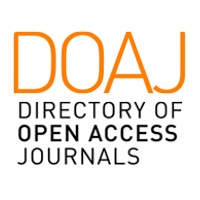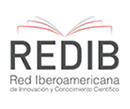INFLUÊNCIA DO AFETO POSITIVO, AUTOEFICÁCIA E SATISFAÇÃO NO ENTUSIASMO DOS ESTUDANTES DURANTE O ESTÁGIO CURRICULAR SUPERVISIONADO
DOI:
https://doi.org/10.31639/rbpfp.v15i34.712Palavras-chave:
Formação Docente, Emoções, Ensino e AprendizagemResumo
Este trabalho investigou a interação entre as experiências afetivas positivas, crenças de autoeficácia e satisfação dos estudantes para explicar seu nível de entusiasmo após o estágio curricular supervisionado. A amostra consistiu em 63 estudantes de licenciatura em Ciências Biológicas. Os resultados revelaram correlações positivas e significativas entre o afeto positivo e a autoeficácia, satisfação no trabalho e entusiasmo dos estudantes. Além disso, a autoeficácia foi positivamente relacionada à satisfação no trabalho e ao entusiasmo. No entanto, a correlação entre satisfação no trabalho e entusiasmo não foi estatisticamente significativa. Estudos anteriores ressaltam a importância do afeto positivo, autoeficácia e satisfação no contexto do estágio curricular supervisionado para o bem-estar e desempenho dos estudantes. Promover experiências afetivas positivas durante o estágio pode aumentar a autoeficácia, satisfação e entusiasmo dos estudantes, preparando-os para a carreira docente. Os resultados sugerem a importância de criar um ambiente de estágio favorável e emocionalmente positivos.
Downloads
Referências
ALHEBAISHI, Safaa Mohammad. Investigation of EFL Student Teachers’ Emotional Responses to Affective Situations during Practicum. European Journal of Educational Research, v. 8, n. 4, p. 1201-1215, 2019. DOI: https://doi.org/10.12973/eu-jer.8.4.1201
ALOE, Ariel M.; AMO, Laura C.; SHANAHAN, Michele E. Classroom management self-efficacy and burnout: A multivariate meta-analysis. Educational psychology review, v. 26, p. 101-126, 2014. DOI: https://doi.org/10.1007/s10648-013-9244-0
ASSAI, Natany Dayani de Souza; BROIETTI, Fabiele Cristiane Dias; ARRUDA, Sergio de Mello. O estágio supervisionado na formação inicial de professores: estado da arte das pesquisas nacionais da área de ensino de ciências. Educação em Revista, v. 34, 2018. DOI: https://doi.org/10.1590/0102-4698203517
BANDURA, Albert et al. Self‐efficacy beliefs as shapers of children’s aspirations and career trajectories. Child development, v. 72, n. 1, p. 187-206, 2001. DOI: https://doi.org/10.1111/1467-8624.00273
BANDURA, Albert. Self-efficacy: toward a unifying theory of behavioral change. Psychological review, v. 84, n. 2, p. 191, 1977. DOI: https://doi.org/10.1037//0033-295X.84.2.191
BANDURA, Albert. The explanatory and predictive scope of self-efficacy theory. Journal of social and clinical psychology, v. 4, n. 3, p. 359-373, 1986. DOI: https://doi.org/10.1521/jscp.1986.4.3.359
BURIĆ, Irena; MOE, Angelica. What makes teachers enthusiastic: The interplay of positive affect, self-efficacy and job satisfaction. Teaching and teacher education, v. 89, p. 103008, 2020. DOI: https://doi.org/10.1016/j.tate.2019.103008
CHEN, Junjun. Efficacious and positive teachers achieve more: Examining the relationship between teacher efficacy, emotions, and their practicum performance. The Asia-Pacific Education Researcher, v. 28, p. 327-337, 2019. DOI: https://doi.org/10.1007/s40299-018-0427-9
DU PLESSIS, E. C.; MARAIS, Petro. Emotional experiences of student teachers during teaching practice: A case study at Unisa. Progressio, v. 35, n. 1, p. 208-224, 2013.
FREDRICKS, Jennifer A.; BLUMENFELD, Phyllis C.; PARIS, Alison H. School engagement: Potential of the concept, state of the evidence. Review of educational research, v. 74, n. 1, p. 59-109, 2004. DOI: https://doi.org/10.3102/00346543074001059
FREDRICKSON, Barbara L. The role of positive emotions in positive psychology: The broaden-and-build theory of positive emotions. American psychologist, v. 56, n. 3, p. 218, 2001. DOI: https://doi.org/10.1037//0003-066X.56.3.218
GARCÍA-LÁZARO, Irene; COLÁS-BRAVO, María Pilar; CONDE-JIMÉNEZ, Jesús. The Impact of Perceived Self-Efficacy and Satisfaction on Preservice Teachers’ Well-Being during the Practicum Experience. Sustainability, v. 14, n. 16, p. 10185, 2022. DOI: https://doi.org/10.3390/su141610185
HARGREAVES, Andy. Mixed emotions: Teachers’ perceptions of their interactions with students. Teaching and teacher education, v. 16, n. 8, p. 811-826, 2000. DOI: https://doi.org/10.1016/S0742-051X(00)00028-7
HONG, Ji Y. Pre-service and beginning teachers’ professional identity and its relation to dropping out of the profession. Teaching and teacher Education, v. 26, n. 8, p. 1530-1543, 2010. DOI: https://doi.org/10.1016/j.tate.2010.06.003
JUDGE, Timothy A. et al. The job satisfaction–job performance relationship: A qualitative and quantitative review. Psychological bulletin, v. 127, n. 3, p. 376, 2001. DOI: https://doi.org/10.1037//0033-2909.127.3.376
JUDGE, Timothy A.; BONO, Joyce E. Relationship of core self-evaluations traits—self-esteem, generalized self-efficacy, locus of control, and emotional stability—with job satisfaction and job performance: A meta-analysis. Journal of applied Psychology, v. 86, n. 1, p. 80, 2001. DOI: https://doi.org/10.1037//0021-9010.86.1.80
KELLER, Melanie M. et al. Teacher enthusiasm: Reviewing and redefining a complex construct. Educational Psychology Review, v. 28, p. 743-769, 2016. DOI: https://doi.org/10.1007/s10648-015-9354-y
KELLER, Melanie; NEUMANN, Knut; FISCHER, Hans E. Teacher enthusiasm and student learning. International guide to student achievement, p. 247-250, 2013.
KUNTER, Mareike et al. Students’ and mathematics teachers’ perceptions of teacher enthusiasm and instruction. Learning and instruction, v. 18, n. 5, p. 468-482, 2008. DOI: https://doi.org/10.1016/j.learninstruc.2008.06.008
KUNTER, Mareike et al. Teacher enthusiasm: Dimensionality and context specificity. Contemporary educational psychology, v. 36, n. 4, p. 289-301, 2011.
KUNTER, Mareike et al. Teacher enthusiasm: Dimensionality and context specificity. Contemporary educational psychology, v. 36, n. 4, p. 289-301, 2011. DOI: https://doi.org/10.1016/j.cedpsych.2011.07.001
LINNENBRINK-GARCIA, Lisa; PEKRUN, Reinhard. Students’ emotions and academic engagement: Introduction to the special issue. Contemporary Educational Psychology, v. 36, n. 1, p. 1-3, 2011. DOI: https://doi.org/10.1016/j.cedpsych.2010.11.004
LIU, Yongmei; XU, Jun; WEITZ, Barton A. The role of emotional expression and mentoring in internship learning. Academy of Management Learning & Education, v. 10, n. 1, p. 94-110, 2011. DOI: https://doi.org/10.5465/amle.10.1.zqr94
LOVE, Jonathon et al. JASP: Graphical statistical software for common statistical designs. Journal of Statistical Software, v. 88, p. 1-17, 2019. DOI: https://doi.org/10.18637/jss.v088.i02
LYUBOMIRSKY, Sonja; KING, Laura; DIENER, Ed. The benefits of frequent positive affect: Does happiness lead to success?. Psychological bulletin, v. 131, n. 6, p. 803, 2005. DOI: https://doi.org/10.1037/0033-2909.131.6.803
MENA, Juanjo; PEINADO, Cristina; HERNÁNDEZ, Inmaculada. Pre-service Teachers’ Self-efficacy Beliefs on Their Role as Teachers During the Practicum. In: Teacher Education as an Ongoing Professional Trajectory: Implications for Policy and Practice. Cham: Springer International Publishing, 2023. p. 71-96. DOI: https://doi.org/10.1007/978-3-031-28620-9_4
MENEZES, João Paulo C. Relação Das Crenças De Autoeficácia Com As Emoções, Estratégias De Enfrentamento E Inteligência Emocional Na Formação Inicial De Professores. Góndola, Enseñanza y Aprendizaje de las Ciencias, v. 17, n. 2, 2022. DOI: https://doi.org/10.14483/23464712.18590
MICHOS, Konstantinos et al. Examining the relationship between internship experiences, teaching enthusiasm, and teacher self-efficacy when using a mobile portfolio app. Teaching and Teacher Education, v. 109, p. 103570, 2022. DOI: https://doi.org/10.1016/j.tate.2021.103570
ROSA, Jeâni Kelle Landre; WEIGERT, Célia; SOUZA, Ana Cristina Gonçalves de Abreu. Formação docente: reflexões sobre o estágio curricular. Ciência & educação, v. 18, n. 03, p. 675-688, 2012. DOI: https://doi.org/10.1590/S1516-73132012000300012
SCHWARZER, Ralf; SCHMITZ, Gerdamarie S.; DAYTNER, Gary T. The teacher self-efficacy scale. 1999.
SELIGMAN, Martin EP. Flourish: A visionary new understanding of happiness and well-being. Simon and Schuster, 2011.
SKAALVIK, Einar M.; SKAALVIK, Sidsel. Motivated for teaching? Associations with school goal structure, teacher self-efficacy, job satisfaction and emotional exhaustion. Teaching and Teacher Education, v. 67, p. 152-160, 2017. DOI: https://doi.org/10.1016/j.tate.2017.06.006
SKAALVIK, Einar M.; SKAALVIK, Sidsel. Teacher self-efficacy and perceived autonomy: Relations with teacher engagement, job satisfaction, and emotional exhaustion. Psychological reports, v. 114, n. 1, p. 68-77, 2014. DOI: https://doi.org/10.2466/14.02.PR0.114k14w0
TROESCH, Larissa Maria; BAUER, Catherine Eve. Second career teachers: Job satisfaction, job stress, and the role of self-efficacy. Teaching and Teacher Education, v. 67, p. 389-398, 2017. DOI: https://doi.org/10.1016/j.tate.2017.07.006
TSCHANNEN-MORAN, Megan; HOY, Anita Woolfolk. Teacher efficacy: Capturing an elusive construct. Teaching and teacher education, v. 17, n. 7, p. 783-805, 2001. DOI: https://doi.org/10.1016/S0742-051X(01)00036-1
WATSON, David; CLARK, Lee Anna; TELLEGEN, Auke. Development and validation of brief measures of positive and negative affect: the PANAS scales. Journal of personality and social psychology, v. 54, n. 6, p. 1063, 1988. DOI: https://doi.org/10.1037//0022-3514.54.6.1063
YOON, Iksang; KIM, Minjung. Dynamic patterns of teachers’ professional development participation and their relations with socio-demographic characteristics, teacher self-efficacy, and job satisfaction. Teaching and Teacher Education, v. 109, p. 103565, 2022. DOI: https://doi.org/10.1016/j.tate.2021.103565
Downloads
Publicado
Como Citar
Edição
Seção
Licença
Copyright (c) 2024 João Paulo Cunha MENEZES (Autor)

Este trabalho está licenciado sob uma licença Creative Commons Attribution-NonCommercial-ShareAlike 4.0 International License.
Os direitos autorais pertencem exclusivamente aos autores. Os direitos de licenciamento utilizados pelo periódico é a licença Creative CommonsAttribution-NonCommercial 4.0 International (CC BY-NC-SA 4.0): são permitidos o compartilhamento (cópia e distribuição do material em qualquer meio ou formato) e adaptação (remix), transformação e criação de material a partir do conteúdo.































